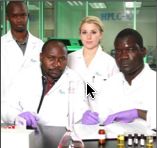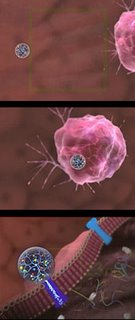
High Fructose Corn Syrup
How often do you read the "Ingredients" information on the label of the food you purchase? If you do, do know what to look for in making choices between products?
I won't repeat here the wealth of information already published on the use of the Nutrition Facts label, required in the U.S. by the FDA. Here's one resouce for doing some homework on that:
http://www.cfsan.fda.gov/~dms/foodlab.html
And I wouldn't claim to be an expert on analyzing all the things you find in the Ingredients listings. But at our house, we've seen enough concern raised over a few very common ingredients, that we've started watching for these more closely in our shopping over the past year. Let's take a look first at "high fructose corn syrup", that ubiquitous goody that shows up in just about everything once you start watching for it.
This article by the San Francisco Chronicle is a good overview of the cautions that we've heard from a variety of sources. If you're frustrated with your lack of success in battling excess body fat, read this article and consider shopping for foods that do not contain this sweetner, as an additional part of your strategy. You'll probably find it frustrating how many common foods you currently use contain it. And you'll also need to be watchful for other sweetners that may not be helpful as well, such as dextrose, maltodextrin, etc. (We won't go into artificial sweetners such as aspartame, sucralose, etc. which are under scrutiny for having their own potential issues.)
From the Chronicle article: "Almost all nutritionists finger high fructose corn syrup consumption as a major culprit in the nation's obesity crisis. The inexpensive sweetener flooded the American food supply in the early 1980s, just about the time the nation's obesity rate started its unprecedented climb."
http://www.sfgate.com/cgi-bin/article.cgi?f=/chronicle/archive/2004/02/18/FDGS24VKMH1.DTL
The good news is that this kind of selective buying can be done without buying exclusively from the organic or health food section of your grocery store. (Although that is probably a good idea anyway. See earlier posting on study regarding toxins in childrens' food.) So take a few minutes to read the package before you buy for the next several months, and see for yourself what happens.
Good hunting!
PS: If you want to be sure you have a balanced outlook on HFCS, here's an information site provided by the Corn Refiners Association. We certainly have no axe to grind with corn growers and processors.
http://www.hfcsfacts.com/
And, here are a couple of general links for U.S. and U.K. requirements for food labeling.
http://www.cfsan.fda.gov/label.html
http://www.food.gov.uk/foodlabelling/








